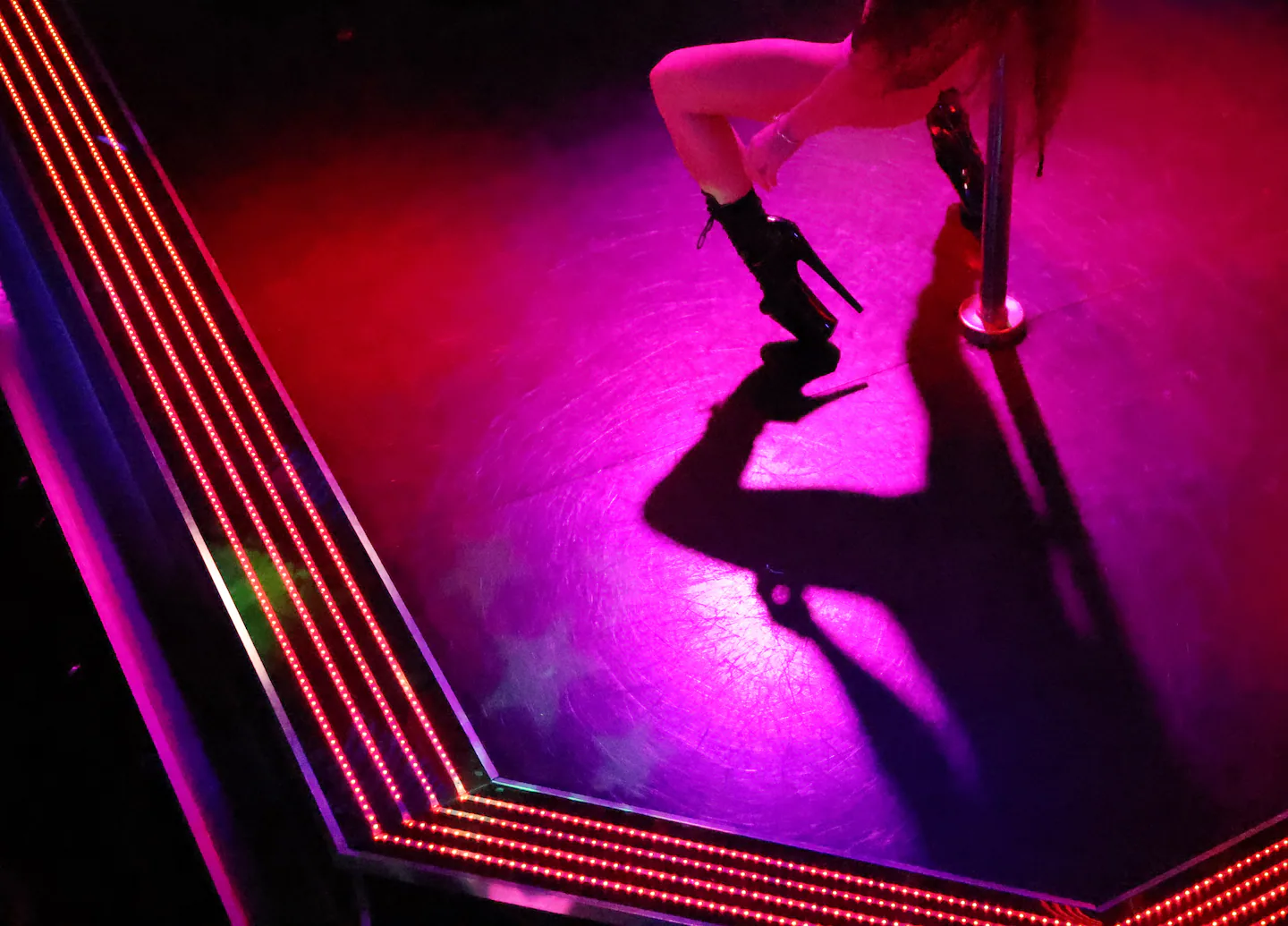Copyright The Boston Globe

But for employees of the downtown nightlife staple, they don’t see the fuss. “We come in peace,” said Monet, a Boston native who works as a cosmetologist by day and declined to give her full name because she did not want to publicize this part of her life. It’s not just Boston’s famed puritanical streak pushing against Centerfolds’ plan to move from LaGrange Street, an out-of-the-way side street downtown it has called home for 25 years, to 27-29 Stuart St., which is a main route that runs into the heart of Chinatown. “This is going to be another reminder of, ‘Oh my God, how much can you put on Chinatown?’” said Karen Chen, executive director of the Chinese Progressive Association. There is a history of marginalization in Chinatown. Highway projects for the Central Artery and the Massachusetts Turnpike carved up parts of the neighborhood, which has acted as a beachhead for immigrants for generations. In recent years, the push of gentrification has remained constant. Demographics for the neighborhood reflect the changes. A master plan for Chinatown estimated that in 1990, 91 percent of residents were Chinese. Nowadays, only about 55 percent of the 5,000 Chinatown residents identify as Asian or Pacific Islander. The back sides of the two buildings in question are less than a stone’s throw away from one another. Front doorway-to-front doorway, the distance around the block is about 150 steps, give or take. The Stuart Street location is next to where the now-shuttered Jacob Wirth Co., a popular German watering hole, stood for decades. The potential project received a specific zoning approval from city authorities for the Stuart Street location over the summer. They have yet to submit an application to the city’s licensing authorities for liquor and entertainment licenses for the new address. City authorities say that if they wish to move, there will be a community process around the licensing for the new location. The impetus behind the potential move is grounded in questions about the future development of the LaGrange building. The club used to own the building, according to Centerfolds general manager Nick DeFilippo, but, battered by the COVID-19 pandemic, the establishment sold it in 2021 for $10 million, property records show. Now, the new landlord may want to develop the space for other uses, he said. “When are they going to build?” he said recently. “We need a backup.” DeFilippo acknowledged that his type of club is “the black sheep” of the hospitality sector, but also a necessary part of the city’s nightlife fabric. He declined to say how many people the place typically entertains on a busy weekend night. The place has a capacity of 394, but typically has seats for 180 to 200, he said. The proposed new location has historically been zoned for adult entertainment use, he said. “If you’re going to keep telling us where we can’t move, tell us where we can move,” he said. “All major cities have us. I know we’re the unsaid secret, but to get major conventions in Boston, that’s what you need. You need adult entertainment.” DeFilippo takes pride in running a welcoming, friendly, and clean operation. He looks forward to coming to work every day, he said. All told, the club employs about 200 people. He considers Centerfolds to be a good neighbor: “We’re not a noisy nightclub. We don’t keep the decibels at a crazy level.” “You can look at our public record,” he added. “We don’t have issues.” That record includes one licensing violation during the past five years, according to city authorities, during which the club received a warning in September 2022 for an armed employee on the premises. DeFilippo said that while the employee had a license to carry, he wasn’t supposed to bring a firearm to work and was fired. There is community pushback to the proposed move. Joseph Guliano, assistant general manager for HI Boston, a hostel located on the same block as the Stuart Street address, spoke to the Chinatown South Cove Neighborhood Council this month, saying that such a move would be “very bad for the city” and a “disservice to the community.” “We are pretty vehemently opposed to it, and we don’t think that it would benefit really any of the businesses or companies here in Chinatown,” he said. “I think the arrangement we have set up now, with them on LaGrange Street, is probably as best a situation as it could be. It’s very much out of sight for a lot of things and they kind of operate on their own terms.” At the meeting, there were nods of agreement. “It won’t happen,” said Ruth Moy, a longtime community advocate of the proposed move. There is history here. At one point during the 1970s, there were a dozen strip clubs in the Combat Zone and about three dozen adult entertainment businesses, according to “The Combat Zone,” a book by journalist Jan Brogan. This included bookshops that sold pornography, X-rated movie houses, and peep shows. Many of the businesses were linked to organized crime. In 1974, the city codified its existence, with the zoning board demarcating a 5½-acre adult entertainment district in the downtown core. The Wall Street Journal once called the zone “a sexual Disneyland.” The Globe described it as a place “for the emotionally and sexually deformed.” It was, by many accounts, a gnarly place, brimming with vice, crime, and police corruption. A number of forces, including political and economic pressures, saw the number of adult entertainment businesses dwindle over the years. According to Brogan’s book, there were 22 strip clubs in 1977. Now there are only two: Centerfolds and its next-door neighbor, the Glass Slipper. “Chinatown fought very hard to eliminate the Combat Zone not long ago,” wrote Felix Lui, president of the Chinese Consolidated Benevolent Association of New England, in a letter to the city’s Zoning Board of Appeal in June. “We don’t need such business practice to be on our doorstep again.” City Councilor Ed Flynn, whose district includes Chinatown, has proposed amending the zoning code so adult entertainment venues downtown would “require a full community process and hearing at the Zoning Board of Appeal moving forward.” “My residents have said to me they want to ensure Chinatown doesn’t go backwards,” he said during a recent council meeting. His proposal was referred to a council committee for consideration. While the specter of the Combat Zone looms large for Chinatown and its advocates, those who work at Centerfolds say the comparison is unfair. DeFilippo, the general manager, points out that some studios at the Kensington, residences near his club, can go for $3,600 a month. Lots of successful people already live near his establishment, is his point. Inside Centerfolds one recent night is the crux of the matter. On stage, women took off their clothes and moved to the music of Lenny Kravitz, Mariah Carey, or the Weeknd. Here, multiple staffers said, you run into people from all walks of life: professional athletes, actors, comedians, corporate-types, truck drivers. In a city historically stratified by race and class, that’s still a rare thing. Many prefer to think of the place as a gentlemen’s club rather than a strip joint. What about concerns of public drunkenness and fights? “We don’t usually bring a lot of riffraff,” said Lexy, another stripper who declined to give her full name because she did not want to publicize her identity. “Other clubs should be more of a concern than us, the regular nightclubs, because those are the places where people are getting trashed.” A 35-year-old Rhode Island native, Lexy enjoys being onstage, she said. She’s been doing this for 15 years. On “an average good night,” she can make $800. She tries to channel the tradition of burlesque into her performances, she said. “When people come in, they’re coming in for a show,” she said. “That wow factor. Not just, ‘Oh, yeah, I’m going to a bar.’ ”



